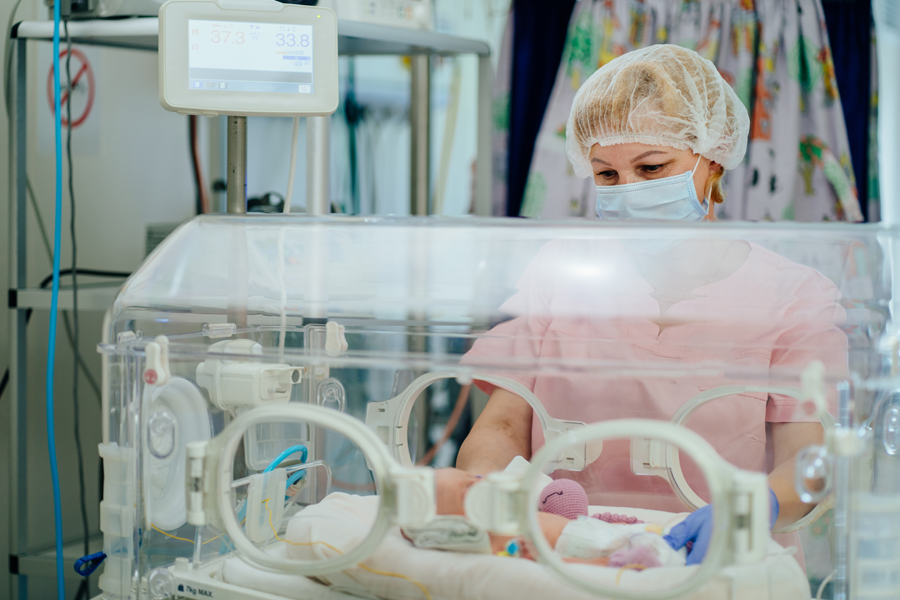Using Artificial Intelligence in Neonatal Intensive Care Units to Guide Effective Nutrition Interventions
June 27, 2025
About 10% of babies born in the United States are admitted into neonatal intensive care units (NICUs) each year. Premature newborns and babies with digestive problems often cannot be fed through their mouths. NICUs give them the nutrients they need intravenously, that is, directly into their bloodstream. This method, known as total parenteral nutrition (TPN), saves their lives. However, creating a TPN formula is complex, time-consuming and costly, and doctors have no universal guidelines to follow. In addition, the wrong formula or one without the needed nutrients can increase a baby’s risk of disease or death.
A recent study supported by NIH’s Clinical and Translational Science Awards (CTSA) Program focused on addressing this issue. Researchers at Stanford University wanted to improve the outcomes in NICUs by using artificial intelligence (AI) to devise TPN formulas. They collected a data set of 79,790 TPN prescriptions from 5,913 NICU patients — along with the relevant medical records — and created a data-driven AI algorithm. With this precision medicine tool, called TPN2.0, they standardized 15 TPN formulas. Colleagues at the University of California, San Francisco, helped them validate TPN2.0 with an additional data set of 63,273 TPN prescriptions from 3,417 NICU patients. Retrospective analyses showed that TPN2.0 formulas would give better results than current TPN practices and may reduce illness. TPN2.0 could shorten the TPN ordering process, reduce human errors in TPN selection and lead to faster response times when changing the TPN formula, based on the patient’s shifting nutrition needs.
Michael Kurilla, M.D., Ph.D., director of NCATS’ Division of Clinical Innovation, which oversees the CTSA Program, stated, “This AI application that packs a decade’s worth of expert experience regarding nutrition for infants in the NICU and makes it available for every hospital to use is a great example of CTSAs delivering 21st century medicine to those who need it most.”
The results appeared in Nature Medicine.
Related Content
CTSA Program
This program funds a network of more than 60 leading medical institutions to improve the health of individuals and communities through research, resources and training.
Our Impact on Tools and Technology
We create solutions that work for many diseases, speeding more treatments for all people more quickly.



